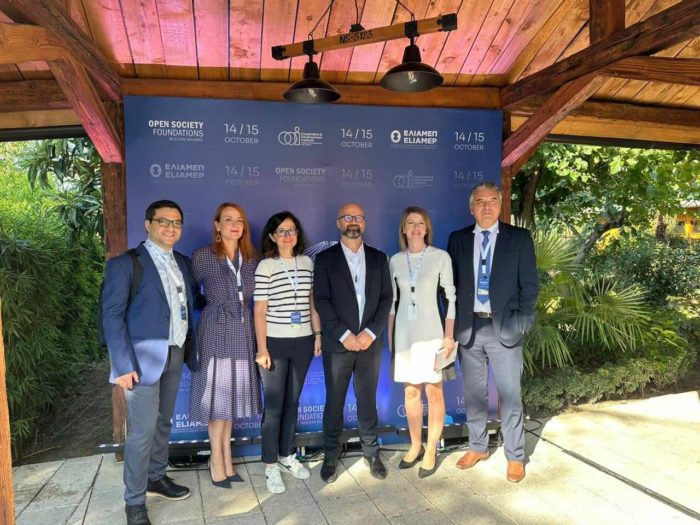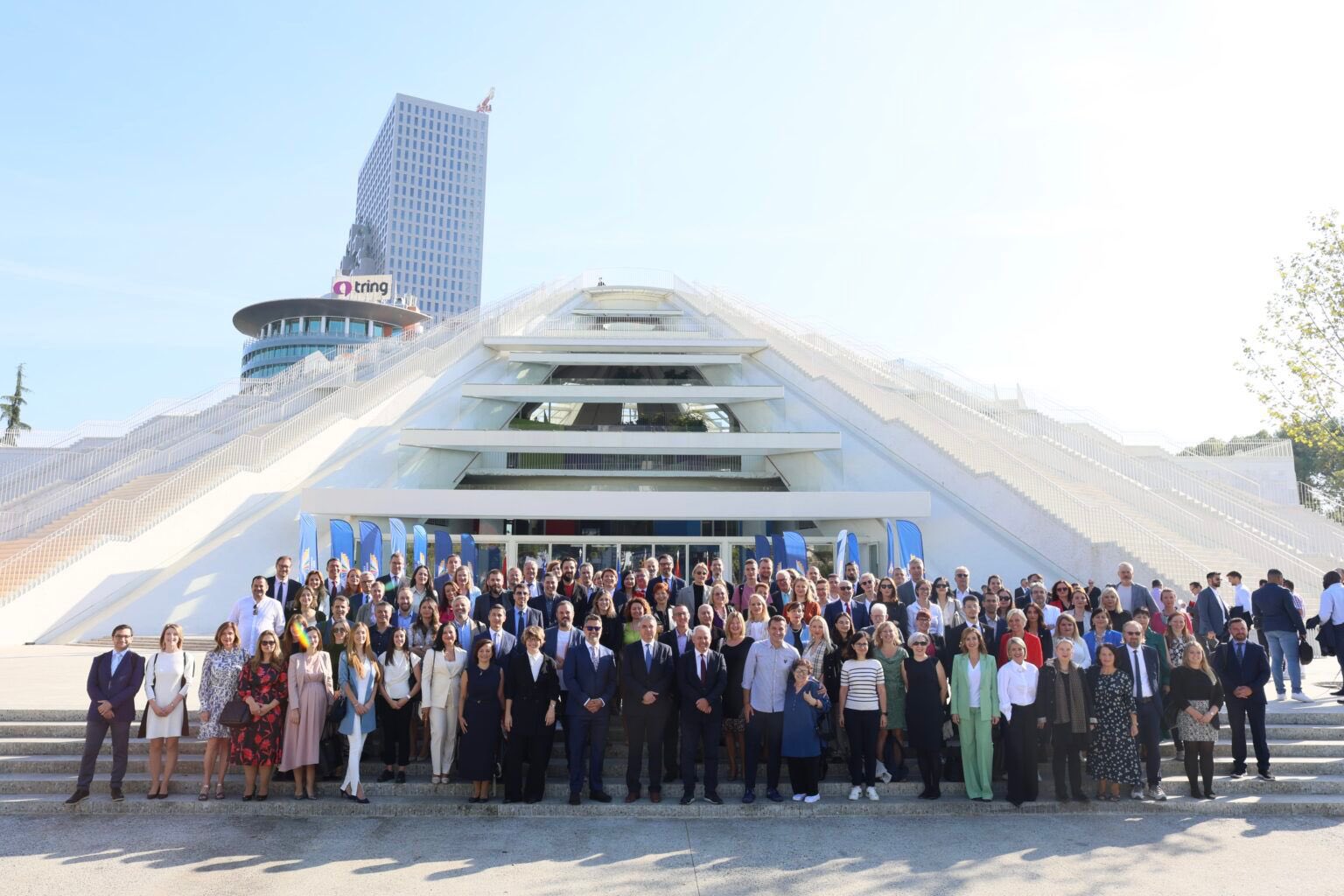This year’s Civil Society and Think Tank Forum which took place between 14 and 15 October in Tirana, Albania, in the framework of the Berlin Process Summit, was successfully concluded. The Hellenic Foundation for European and Foreign Policy (ELIAMEP) participated as co-organizer of the Forum and organized and coordinated the panel “How to seize the new momentum?”.
Ioannis Armakolas, Head of the South-East Europe Programme, which was the implementing body of the ELIAMEP’s contribution at the Civil Society and Think Tank Forum, spoke at the launching event of the Forum on Saturday 14 October. Armakolas said, among other things, that the work of the Thematic Working Groups established within the framework of the project had resulted in the demolition of a myth, often heard in European capitals about the Western Balkans; that the countries of the region are only interested in “their” small problems and bilateral disputes in the region when the world has bigger problems and political priorities. In this regard, he argued that ” the thematic dimension and approach of this year’s Forum will show that the Western Balkans have understanding, knowledge, ideas and recommendations for the global agenda that the EU is pursuing; for the green transition, for energy, for mobility and for all the problems that are global and the EU is very much involved in tackling”.
You can watch the launching event of the Forum here.
On the same day, the panel “The Politics of Enlargement: how to seize the new momentum?” was moderated by journalist and researcher of ELIAMEP’s South-East Europe Programme, Alexandra Voudouri. This panel featured Ditmir Bushati, former Minister for Europe and Foreign Affairs of Albania, Nikola Dimitrov, former Minister of Foreign Affairs of North Macedonia, Adnan Ćerimagić, senior Analyst for the Western Balkans for the European Stability Initiative and Ana Krstinovska, ELIAMEP Researcher and President of ESTIMA.
Ditmir Bushati focused on Kosovo-Serbia relations. He wondered why the EU should have a special envoy for Kosovo and Serbia as it has for the Middle East, South Africa and Latin America. According to Bushati, this sends mixed messages to the region. He also added that appeasing Serbia will not succeed in bringing Belgrade closer to the EU, while EU membership is supposed to be a process in which enemies should be turned into neighbors, which is not the case with Kosovo and Serbia. Nevertheless, he opposed the imposition of sanctions on Serbia, as he believes that this would consolidate the existing leadership. Instead, he said that the two countries should be motivated by a unified approach from the EU to engage in the solution process.
Nikola Dimitrov underlined that the enlargement process has been transformed from an instrument of reforms and positive changes to a management tool. He admitted that there is now a new dynamic on the enlargement issue because of Ukraine, but nevertheless there has not yet been anything tangible. The conundrum between internal reforms, how to create space within the EU for new members and enlargement has limited the debate to a concept of European integration without membership. In relation to bilateral differences, he said that there is an asymmetry when the difference is between a member state and a candidate country. There is leverage and there is veto power. That is why he made specific reference to the importance of protecting the integrity of the accession process and the Copenhagen criteria from issues that are not really related to them.
Adnan Ćerimagić was categorical about the current enlargement policy, saying that both politicians and citizens are cynical about the EU at a time when there is a fear of a return of violence in the region and the risk of losing the current momentum created by the war in Ukraine. Furthermore, he was clear on the issue of the Western Balkans’ EU membership, saying that membership is inextricably linked to reforms within the Union. Furthermore, he said that the issue of EU membership is not necessarily a matter for the six current governments in the region, but also for future governments that come to power that will be willing to capitalize on the dynamics and instruments that the EU offers to the Western Balkans and undertake structural reforms. Ćerimagić believes that it is particularly important to find ways to support and empower these future governments and political figures.
Finally, Ana Krstinovska presented the recommendations of the Thematic Working Group on Enlargement Policy. According to the recommendations, EU accession should be accelerated and decision-making in the EU Council should be simplified so that member-states cannot veto intermediate steps in the process. Kristinovska said that the process should return to the practice of Accession Action Plans which would be country-specific and include rewards and incentives for countries that make progress on reforms. Furthermore, as regards to accession, it is important that there are clear timetables and concrete deliverables. On bilateral disputes, Kristinovska pointed out that sometimes enlargement is too political and the politics related to bilateral disputes is an additional burden that should not be in the accession process. Therefore, it is necessary to free the enlargement process and link it only to reforms, while bilateral disputes should be resolved in parallel.
You can watch the panel discussion here.
You can learn more about the project here and here.
You can follow the South-East Europe Programme on Facebook and X.











